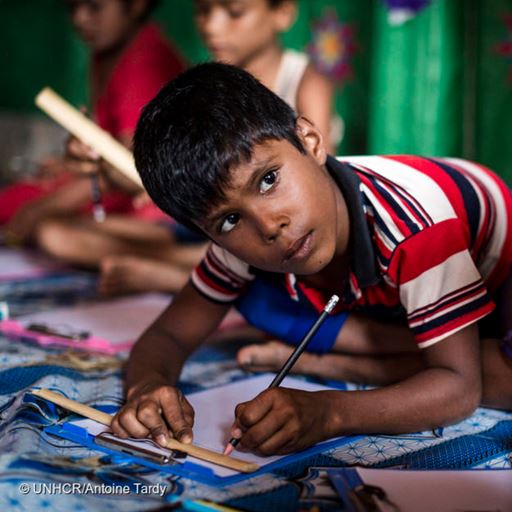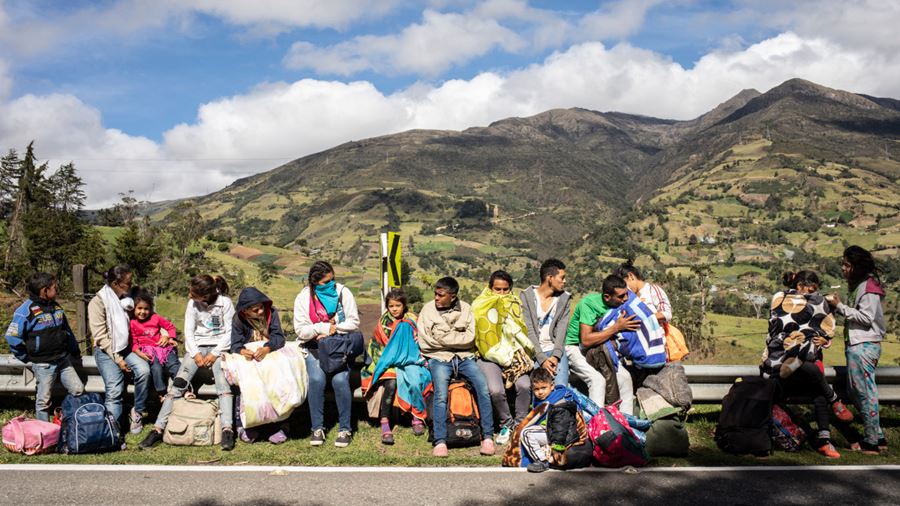All voices must be heard in work on refugees, says Chair of new network
-
Date
Fri 17 Jul 20

With Essex set to play a central role in a new academic network focused on the global refugee crisis, its Chair has called for those with first-hand experience of forced displacement to have a greater voice in research.

A virtual signing ceremony on Thursday saw Filippo Grandi, United Nations High Commissioner for Refugees (UNHCR) and Bryn Morris, University of Essex Registrar, sign an agreement paving the way for Essex to host the new Global Academic Interdisciplinary Network (GAIN) Secretariat.
This new partnership further confirms the University’s global reputation for teaching, research and scholarship in the fields of human rights and humanitarian law.
The Secretariat will co-ordinate the work of GAIN, promoting research and education across the world on protection of forcibly displaced persons.
Professor Geoff Gilbert, from the School of Law and Human Rights Centre - and Chair of the Network - said: “It’s an honour and a privilege to host the Secretariat here at the University of Essex. This new body will help connect those working in this field, help to secure funding for research, facilitate knowledge transfer and, as it develops over the next few years, become a resource for scholars around the world.”
The Secretariat, which will shortly announce a series of webinars, will place refugees and scholars from across all the world at the heart of its work.
Professor Geoff Gilbert said: “We need to move away from the idea that the countries that host 85% of the persons of concern to UNHCR are simply case studies for academics from the Global North.
“There needs to be genuine co-research between academics in the countries where the refugees are given protection and those in the Global North, so we can produce the best-informed scholarships and develop global excellence in research. This research must be properly funded and draw on all the expertise.”
GAIN was launched in December 2019, following a call for greater research on the issues affecting people experiencing forced displacement, made as part of the Global Compact on Refugees.
The new initiative will also provide support to refugee scholars and students.
Bryn Morris said: “The University of Essex has a long tradition of welcoming academics and students who are refugees, providing them with a base during their displacement.
“Many of our graduates have gone on to work for UNHCR and the signing of this agreement today, with Essex hosting the GAIN Secretariat, marks a further phase in the deep and rich relationship between UNHCR and Essex, a relationship of which we are extremely proud.”
Essex Human Rights Centre, established in 1982, was one of the first centres of its kind in the world. Many of its 3000-plus alumni are now in positions of influence in the global human rights community, and the Centre’s academics regularly contribute to work within the United Nations.
The UNHCR Innovation Service is currently working with Professor Gilbert and the University’s School of Computer Science and Electronic Engineering and Department of Government, to predict forced displacement relating to climate anomalies and conflict in Africa, using machine learning and satellite imagery.
The University has also taken steps to become a University of Sanctuary. Our main campus sits just outside Colchester, a UK City of Sanctuary.
Professor Geoff Gilbert is Professor of International Human Rights and Humanitarian Law. He was Editor-in-Chief of the International Journal of Refugee Law from 2002-15 and is co-Editor-in-Chief as of September 2019. His recent publications include Creating safe zones and safe corridors in conflict situations: Providing protection at home or preventing the search for asylum?, Rule of Law and United Nations Interoperability (both with Anna Magdalena Bentajou), and Political participation of refugees in their country of nationality.
Top image: ©UNHCR/Antoine Tardy. Main image: ©UNHCR/ Helene Caux. Both images by kind permission of Refugee Media/UNHCR.
.jpg?mh=500&mw=500&hash=6568B6C9CCF5290A596BEF6678B6AD0E)



